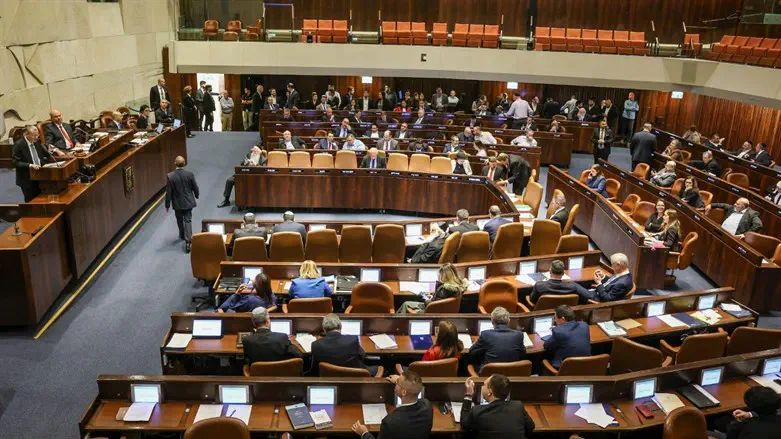
The Knesset is set to vote Wednesday on additional bills proposed as part of the government’s judicial reform plan, two days after the Knesset plenum backed two key judicial reform measures in their first reading.
The Coalition has scheduled votes Wednesday in the Knesset plenum for two of the judicial reform plan’s most controversial measures: the Override Clause, which in its current form would grant the Knesset the power to veto Supreme Court rulings which overturn Knesset laws, requiring only a 61-vote majority – rather than a supermajority as argued by some of the law’s critics – and the “Deri Law 2,” which would prohibit the Supreme Court from striking down ministerial appointments, potentially paving the way for former Interior Minister Aryeh Deri’s return.
Both bills will go up for their preliminary vote Wednesday, and will need to clear additional votes in the Knesset before they become law.
Beyond the two judicial reform bills, the Knesset will also vote on legislation proposed by MK Moshe Gafni (United Torah Judaism) banning leavened bread from hospitals during Passover.
Dubbed the “Hametz Law,” the bill was drafted in response to a Supreme Court ruling last year striking down the ban on leavened bread in hospitals and mandating that hospitals must allow bread in.
According to a report by Reshet Bet Wednesday morning, the Hametz Law is expected to be watered down after its initial passage in the Knesset Wednesday.
The current draft of the bill mandates that all hospitals must ensure leavened bread is not brought in their premises during Passover, while the draft reportedly under consideration would give hospital administrators discretion in this regard.
Most major hospitals, it is believed, will choose to bar leavened products during Passover, in order not to lose haredi patients.
All three bills are expected to easily pass their respective votes Wednesday.
On Monday, the Knesset voted to back measures barring the Supreme Court from striking down Basic Laws, and giving the government more influence over the committee responsible for appointing new judges.
Both bills were approved 63 to 47 in votes late Monday night, following protests across the country against the judicial reform plan.

